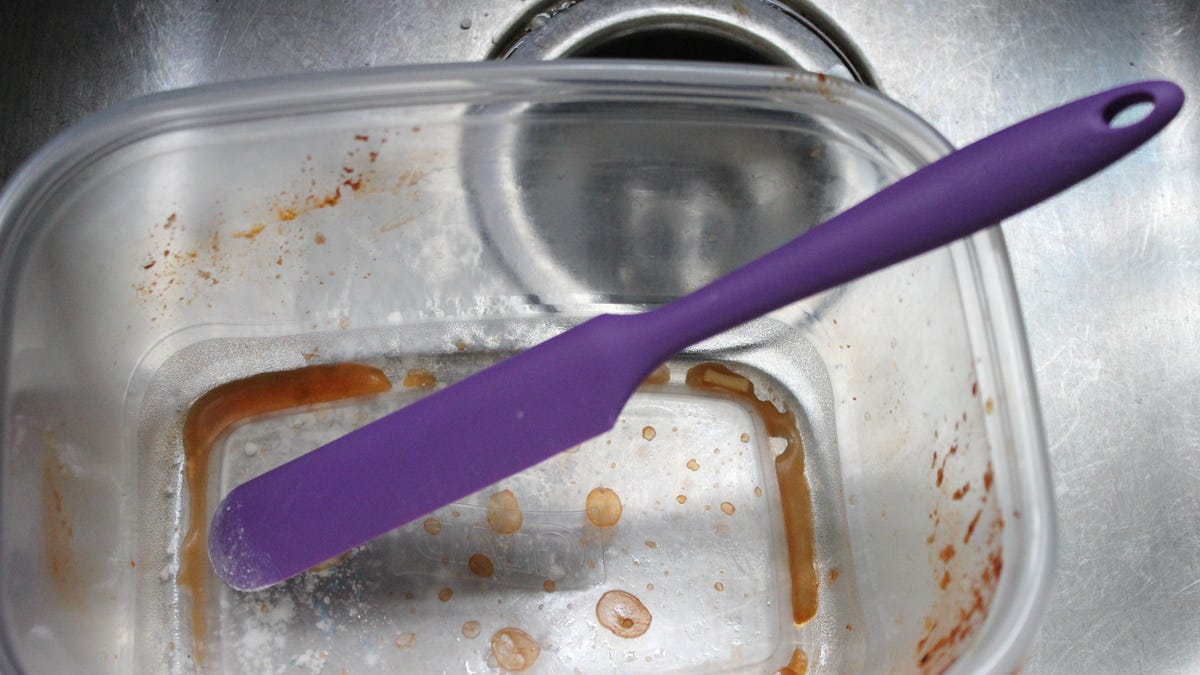Dishwasher vs. hand-washing: What saves more water?
Using your dishwasher is more Earth-friendly. Here's why.

Scrape, but don't rinse your dishes.
It may be hard to believe, but a big electricity-using dishwasher is a greener choice than hand washing your dishes, if it is a newer model and you're washing full loads. So put away the sponge and take a look at these mind-blowing facts.
How much water does a dishwasher use?
This may appear impossible since it seems like dishwashers are constantly spraying water, but a newer one does use less water than hand washing. Getting them clean in the sink can use up to 27 gallons of water per load. An Energy Star certified dishwasher can use as little as 3 gallons per load (around 11 litres), according to the Natural Resources Defense Council. In fact, an Energy Star certified dishwasher can save almost 5,000 gallons of water per year.
How new does your dishwasher need to be to get these savings? In 2013, new standards were put in place that required dishwashers to use as much as 5 gallons per load. On the other hand, units built before 1994 can waste more than 10 gallons of water per load.
How dishwashers save energy
This one may be even harder to believe than the water-saving fact, but it's true. Think about it. Your water heater needs to make hot water for you to wash dishes by hand. Most newer dishwashers have heaters inside that warm up water more efficiently than your water heater. Overall, if it is Energy Star certified, it can use less than half the energy of washing dishes by hand.
And don't rinse by hand
Rinsing your dishes before you stick them in your dishwasher is majorly wasteful. According to Consumer Reports, prerinsing wastes more than 6,000 gallons of water per household every year. Most newer dishwashers can handle bits of food, so don't worry. Your dishes will still come clean as long as you scrape the big stuff into the trash.
Make sure you have a full load, though
These savings only apply to full loads. If you can't seem to fill up your dishwasher once a day, use the rinse and hold feature, if it has one. This will prevent food from drying and sticking until you get around to starting a load and will still help you be green.
A note for the holdouts
Still don't want to put your dishes' fate in the hands of a machine even though it's good for the environment? Consider this: It takes water that is 140 or 145 degrees Fahrenheit (60 to 62.7 degrees Celsius) to fully sanitize dishes. Your hands just can't handle that, and I'm guessing you don't want to turn up the heat setting on your water heater every time you wash dishes, either. So, let your dishwasher deal with the high temperatures while you sit back and relax.

